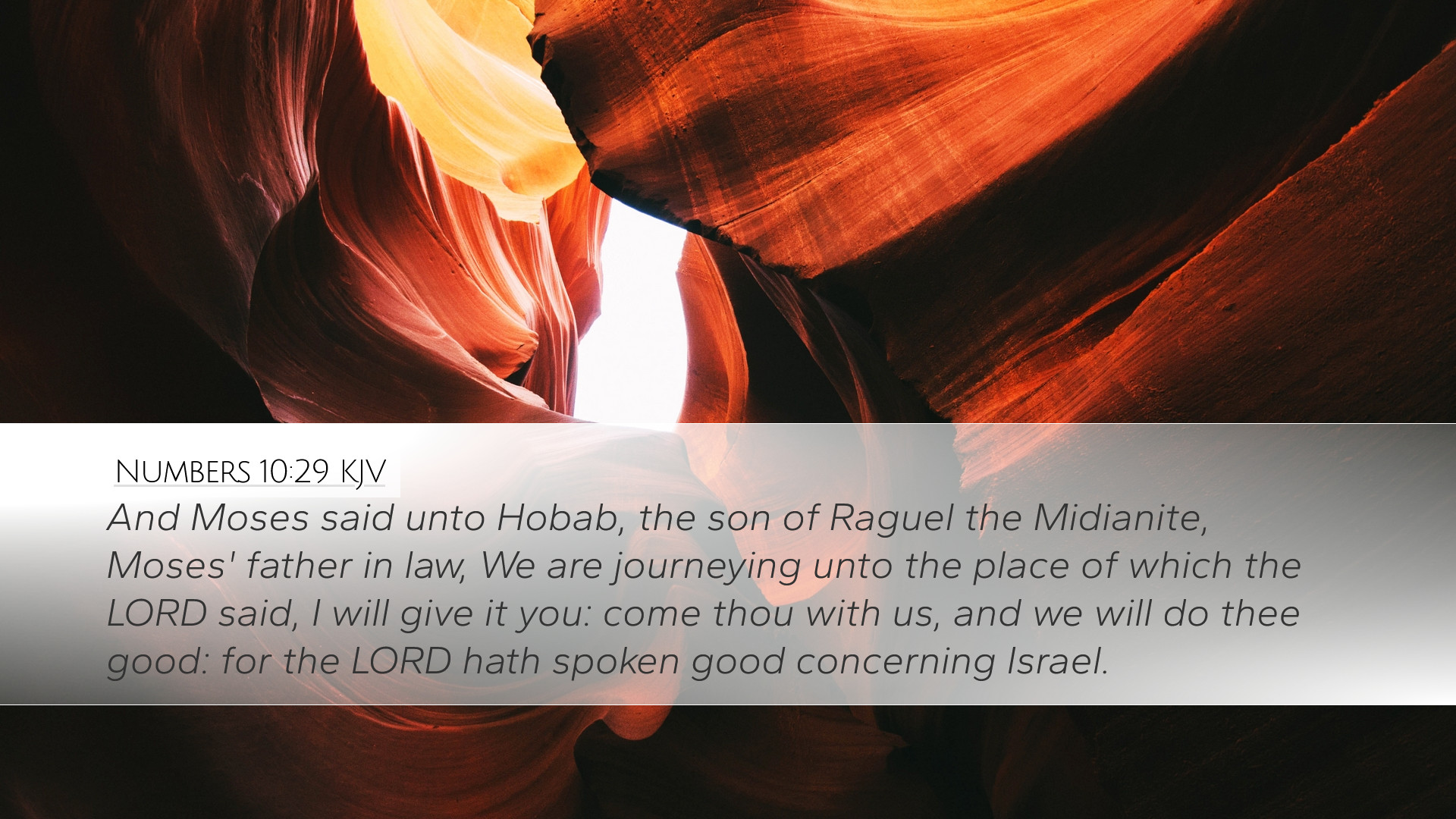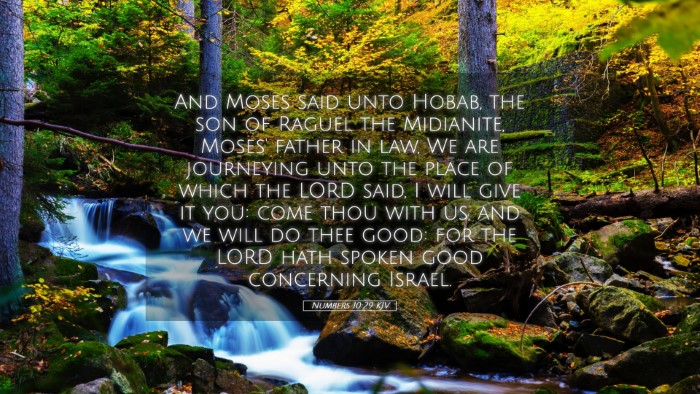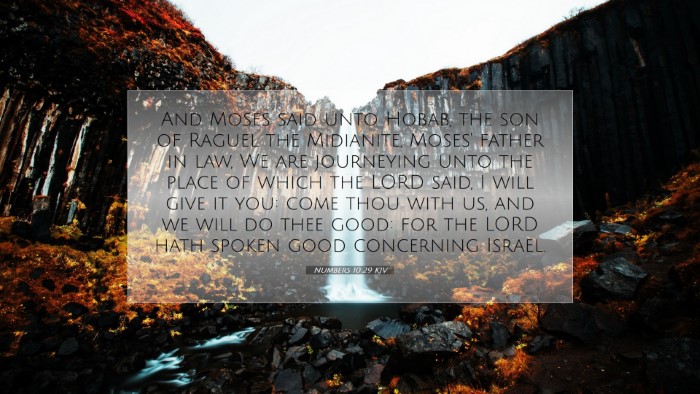Commentary on Numbers 10:29
Verse Context: Numbers 10:29 reads, "And Moses said unto Hobab, the son of Raguel the Midianite, Moses' father-in-law, We are journeying unto the place of which the Lord said, I will give it you: come thou with us, and we will do thee good: for the Lord hath spoken good concerning Israel."
Introduction
This passage occurs in the midst of Israel’s wanderings through the wilderness, just before they prepare to enter the Promised Land. Hobab, the Midianite, is Moses’ brother-in-law, and his inclusion in this important journey illustrates not only the nature of Israel’s mission but also the call to communal journeying and covenant participation.
Insights from Commentators
Matthew Henry's Commentary
Matthew Henry emphasizes the familial and communal aspects of this encounter. He notes that Moses calls Hobab to join them not merely as an invitation of friendship but also as a means of ensuring that they have capable guidance through the wilderness. Henry highlights the importance of Hobab’s expertise, as he is familiar with the terrain and capable of leading them. This reflects the idea that God’s people should draw upon the wisdom and experience of others on their journey.
Furthermore, Henry points out the faith and optimism Moses displays. He tells Hobab of the goodness that has been promised to Israel by the Lord, asserting the faithfulness of God’s covenant. This statement is an invitation underscored by a theological truth: the journey of faith is one of both challenge and promise.
Albert Barnes' Notes
Albert Barnes provides a detailed analysis of the relationship between Moses and Hobab. He notes that although the Israelites were aware of God's promises, Moses understood the value of actively engaging relationships to fulfill God's purposes. Hobab’s potential aid is thus significant; he represents a bridge between God’s promises and practical navigation. Barnes states that Moses’ entreaty reflects a belief in the importance of collaboration within faith communities.
Barnes also highlights the phrase “We will do thee good” as indicative of the community ethos that is integral to Israel’s identity. Inviting Hobab amongst them was not just a strategic move; it reflects a profound theological principle that those in covenant community are called to care for one another. The goodness promised is rooted in the collective experience of faith, signifying that God’s blessings flow through relationships.
Adam Clarke's Commentary
Adam Clarke offers insights into the character of Hobab as well. He suggests Hobab’s background as a Midianite hints at the broader inclusion of Gentiles into the experience of God's blessings. Clarke argues that Hobab's acceptance of Moses' invitation could serve as a typological foreshadowing of the Church’s mission to invite the nations into God’s covenant community.
Clarke emphasizes the importance of the invitation extended by Moses in a larger theological context. It invites reflection on the mission of the Church today: to invite all into a relationship with God, regardless of their background. Clarke’s comments lead to a profound consideration of the role of inclusivity in the life of the believer.
Theological Implications
The invitation to Hobab signifies more than a call to join in the journey; it is emblematic of the inclusive nature of God’s call. Several theological reflections emerge from Moses’ statement:
- Community and Collaboration: The journey was not to be taken in isolation. The involvement of Hobab illustrates the necessity of communal support and guidance.
- The Assurance of God’s Promise: The declaration of goodness reflects an unwavering faith in God’s promises and serves as an encouragement to others.
- Gentile Inclusion: Hobab’s involvement prefigures the New Testament theme of inclusion whereby God’s promise extends beyond Israel to all nations.
Practical Applications
The lessons from Numbers 10:29 are highly applicable to the contemporary Church and Christian life. Consider the following applications:
- Invitations to Participate: Believers should actively invite others into their faith journey, exemplifying the collaborative spirit of the Church.
- Sensitivity to Gifts: Recognizing the various gifts within the community enhances the collective journey, mirroring the importance of Hobab's guidance.
- Communal Faith and Experience: A shared and communal acknowledgment of God’s promises strengthens the faith of individuals and the community at large.
Conclusion
Numbers 10:29 serves as a rich theological passage that speaks volumes about community, inclusivity, and God’s faithfulness. The endorsement of Hobab’s assistance by Moses highlights the importance of relationships in the covenant journey of faith. As ministers, scholars, and believers study this text, they are invited to reflect on their roles not only in their own journeys but also in the collective journey toward the fulfillment of God's promises.


